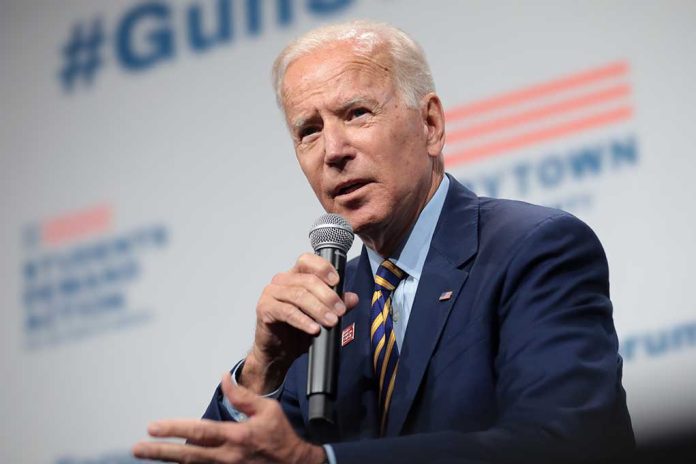
Critics have taken issue with a PBS segment on President Biden’s clemency decision, raising concerns about missing dissenting viewpoints and journalistic integrity.
At a Glance
- PBS faced criticism for not including opposing views on Biden’s clemency for death row inmates.
- Biden commuted sentences of 37 federal death row inmates to life imprisonment.
- The decision excludes individuals convicted of hate crimes or terrorism.
- Clemency aligns with Biden’s previous campaign promises against federal executions.
Criticism of PBS Coverage
A recent PBS News Hour segment has come under fire for focusing solely on anti-death penalty perspectives when reporting President Joe Biden’s clemency of 37 death row inmates. The lack of a wide array of viewpoints has drawn criticism, emphasizing the need for addressing the gruesome crimes that justified the original death sentences. Notably absent was insight into the impact on victim’s families or legal professionals advocating for capital punishment. This omission raises questions about journalistic diligence.
Robin Maher, an anti-death penalty advocate, was prominently featured, highlighting potential racial biases and flawed prosecutorial methods related to the convictions. However, critics argue that PBS failed to present any discourse with contrasting opinions. Such coverage can significantly skew public perception, leading to debates about the role of media in upholding balanced reporting.
PBS Openly Embraces Biden's Controversial Clemency for Death Row Inmateshttps://t.co/Blt6Up9ZDU
— MRC NewsBusters (@newsbusters) December 26, 2024
Historic Clemency Act
Biden’s action to commute sentences for 37 federal death row inmates, excluding those involved in terror or hate crimes, will stand as a pivotal moment in U.S. history. In a statement, Biden said: “I’ve dedicated my career to reducing violent crime and ensuring a fair and effective justice system. Today, I am commuting the sentences of 37 out of the 40 individuals on federal death row to life sentences without the possibility of parole.” His administration’s moratorium is intended to pause federal executions except for specified severe crimes.
Biden’s change of heart regarding capital punishment began during his 2020 presidential campaign, following an execution spree in the previous administration’s final months. His decision comes off as an effort to move away from past aggressive incarceration tactics and symbolize second chances. Early indications have shown that Biden plans on maintaining a moratorium on federal executions while striving to abolish the federal death penalty altogether.
President Biden announced that he is commuting the sentences of 37 of the 40 people on federal death row, converting their punishments to life imprisonment just weeks before President-elect Trump, an outspoken proponent of expanding capital punishment, takes office.…
— PBS News (@NewsHour) December 23, 2024
The Broader Implications
While historic, this clemency act has received mixed reactions. Critics note the decision aligns with Biden’s promises but raises concerns about the balance between justice for crime victims and broader civil rights advocacy. Martin Luther King III praised the focus on racial and fairness issues. Yet, others argue against the absence of visibility on inmate victims’ plight and whether justice can truly be served without seeing reformation in the justice system.
Public sentiment surrounding the decision and ensuing media coverage will require further examination. Glancing back at historical instances where mass clemencies were bestowed by U.S. presidents offers context for the ensuing discourse on federal clemency’s ethical and legal dimensions. Continuing the conversation on this presidential act’s broader implications will undoubtedly remain on the public agenda.





